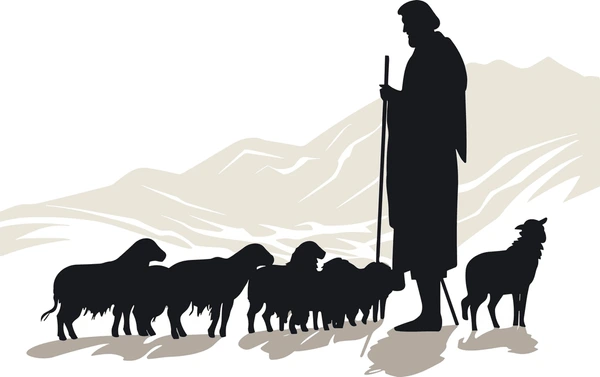1. A Biblical defense of the office of elders
Barnabas and Saul placed the offering collected for the poor in Judea in the hands of the elders (Acts 11:30).
The elders in Jerusalem gathered together with the twelve apostles to consider a doctrinal problem (Acts 15:2.6).
The Bible prescribes the governance of the congregation by a group of elders in the congregations in Derbe, Lystra, Iconium, Antioch (Acts 14:23), in the congregation in Ephesus (Acts. 20:17; 1 Tim. 3:17; 5:17-25), Philippi (Phil. 1:1), in the congregations in Crete (Titus 1:5) and, according to Peter’s letter, in the congregations in Ponta, Galatia, Cappadocia, Asia and Bithynia (1 Pt. 1:1; 5:1)
Both the apostle Paul and Peter address the elders of the congregations directly, commanding them to lead and oversee the local assemblies (Acts 20:28; 1 Pt 5:1-2).
Both at the beginning and at the end of his ministry, Paul appointed a number of elders to care for the congregations he had established (Acts 14:23; Titus 1:5). It is clear from the wording of Titus 1:5 that elders are essential in the congregation.
Paul states that the elders are stewards, or administrators of the congregation (Titus 1:7,).
Elders are bishops, or managers of the congregation (Acts 20:28; Phil. 1:1).
They were established by the Holy Spirit of Yahuah (Acts 20:28).
Peter admonishes the elders not to abuse their authority (1 Pt 5:3).
The elders take care of the Congregation of Yahuah (1 Tim 3:5)
2. The principle of plurality
By the laying on of hands they appointed elders (Acts 14:23)
Paul summoned the elders (Acts 20:17.28-29)
Let the sick call the elders of the congregation (James 5.14)
Success and victory is where there are many advisors (Proverbs 11:14; 15:22; 24:6), not power in the hand of one person
3. The division of the Council of Elders: teaching elders (shepherds) and governing elders
Priests appointed according to separate regulations for Levites (Deut 18:2.5; Lev 3:5-13; 6:22-27; Ps 132:9.16; Jer 26:7).
Elders selected from among Yahuah’s people (Ex 3:16.18; 18:3; 19:7; 24:1-11; Leviticus 4:13-15; Deut 21:1-9; 1 Sm 8:4; 2 Sm 5:3; 1 Kings 20:7-8)
Levites and elders together formed the council (Acts 4:23; 6:12; 23:14; 25:15).
The gift of managing and being a superintendent differentiated from teaching (Romans 12:7-8)
The gift of management distinguished from teaching (1 Corinthians 12:28)
Every shepherd is an elder, but not every elder is a shepherd. Not all elders have to teach publicly (1 Tim 5:17)
The apostle Peter was an elder, but not every elder was an apostle (1 Pt 5:1)
4. Responsibilities of pastors and elders of the congregation
Shepherds:
Following the model of the Levites, they are called as ministers of the Word in both its forms – Scripture and the gifts of the Holy Spirit, and as overseers of worship (Leviticus 1:5n; Ez 7:10-11.26; Neh 8:7-9, 1 Kings 13:28-32; 15:1nn; 16:4nn; 23:13; 24:19; 2 Kings 15:3; 17:8-9; Mal 2:4-9).
Dealing with difficult issues requiring in-depth knowledge of the Scriptures – (Deut 17:8-13; 21:5; 1 Kings 23:4)
Teaching publicly (1 Tim 5:17; Eph 4.11-12)
Granting remission of sins as well as retention on the basis of Yahuah’s Spirit. (John 20:23)
Anointing through the immersion in water and imparting the gift of the Holy Spirit of Yahuah. Healing the sick. Casting out demons. (Matthew 28.19-20; 1 Corinthians 11.23-26)
Governing Elders:
They were judges to settle disputes, make decisions on behalf of the people and administer just punishments (Deut 25:1.7-8; 19:12; 22:13n; Josh 20: 4.6)
They were administrators of the civil code (2 Kings 19:8-11 (Lev 11:16nn, Ruth 4:1-12)
They gave advice (1 Sm 4:3; 8:5; 2 Sm 3:17-18; 5:3; 1 Kings 20:7-8; Ezra 5:9).
Shepherds (teaching elders) and governing elders:
Together they formed a council of elders (Acts 15:3-6)
All elders should be humble, willing to serve, caring, showing brotherly love (Matthew 23:1-12; Mark 9:34-35; 10:32-45).
Stewardship and pastoral care (1 Peter 5:1-2; 1 Peter 1:5; Titus 1:7)
Israel’s overseers (collectively the Levites and elders) – being a guide (Heb 13:17)
Equipping the saints (Eph 4:11-12)
Giving counsel (1 Sm 4:3; 8:5; 2 Sm 3:17-18; 5:3; 1 Kings 20:7-8; Ezra 5:9)
Prayer, fasting – Acts 6.4; 13:1-3; Col 4.12
Protection from false teachings (Acts 10:28. Titus 1:9-11)
Encouragement of the stumbling and congregational discipline (1 Cor. 5:1-5)
Exhortation (2 Tim. 4:2; Titus 1:13)
Being a model in obedience to Yahuah for the sheep (Heb 13:7)
Visiting the sick (James 5:14-15)
Leading (Rom 12:8)
Administration (1 Corinthians 12:28)
Traits and attitude: empathy, being close to people (Rom 12:15), courage (1 Thes 2:11-12); comforting (1 Thes 2:11-12; Eph 5:14), building up (Eph 4-5; Col 3), exhorting and encouraging (1 Thes 2:12)
5. Criteria for being an elder
A person who meets the scriptural qualifications in one’s home, character, teaching and knowledge of the Scriptures (1 Tim 3.1-13; Titus 1.5-9; 1 Pt 5.2-4).
A certain maturity is required. Scripturally usually 30 years and above: the example of the beginning of the service of the Levites, Joseph, Yahusha (4 Macc. 4.1-3; 1 Kings 23.1-5; Luke 3.23)
Eager to learn, humble, eager to confess one’s sins (Luke 22:62; 1 Tim 3:6; James 5:16)
6. The responsibility of the faithful to the shepherd and elders
Brotherly love (1 Thes 3:12)
Remember them, imitate their faith (Heb 13:7)
Be obedient to your overseers (Heb 13:7-17)
Give credit to your overseers (1 Thes 5:12)
Share your goods with the one who teaches (Gal 6:6)
Give double honor, especially to those who teach the Word (1 Tim 5:17). This includes financial offerings of tithes and gifts.
Pray for the shepherd and elders (Col 4:3)
Elders are a gift to the body. Show gratitude to them (Eph 4:11-16)
James instructs believers to call on the elders of the congregation when they are sick (James 5:14).
Against an elder, do not accept a complaint unless it is based on the testimony of two or three witnesses (1 Tim 5:19)
